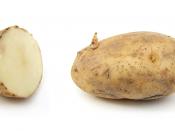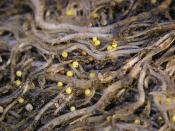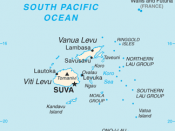Horticultural exports have grown steadily from 1970, 1.8% of exports through to 2003 9.3% of total Horticulture exports. Fiji is one of the main countries that New Zealand exports fresh potatoes too, reaching $9 million in 2003. However, the Fiji potato market demands specific requirements on the fresh potatoes that are exported there.
Potatoes that are exported to Fiji are required be to of a high standard. Potatoes that are exported to Fiji need to have a phytosanitary certificate. A phytosanitary certificate ensures that the potatoes that are going to be imported to Fiji were grown in an area entirely free from potato cyst nematode and are therefore of a high quality. The potato shipments require a phytosanitary certificate sent to the importer in Fiji for clearance, before the actual potatoes enter Fiji. This is important to Fiji as Fiji is nematode free, releasing potatoes that are potentially infected with nematode will cripple the domestic potato and fresh vegetable market.
Fiji would then have to rise the price of exporters exporting potatoes to Fiji to cope with this problem.
The fresh market of Fiji market require around 12 to 14 thousand tonnes per year (1-1100 tonnes per month), preferring the potato mass of 170-20 grams and size of 45 mm - 95 mm. This figure is climbing as the traditional use of rise is changing, there is now a shift in this tradition, especially among the 51% of Fijian Indians living in Fiji, towards the use of potatoes. The potatoes that are majority required/exported are the floury cultivars, such as Agria, Draga and Ilam Hardie. These potatoes are required the most as they work best with traditional Indian dishes, and are also good for frying. However, over 50% of the potatoes that are exported to Fiji are milt-purpose potatoes. These...



Requirements of specific market opportunities; The Fiji fresh market
A good piece of information on the potato market in Fiji and the requirements for expoting them there.
Potential exporters should find this article helpful.
A good piece
0 out of 1 people found this comment useful.